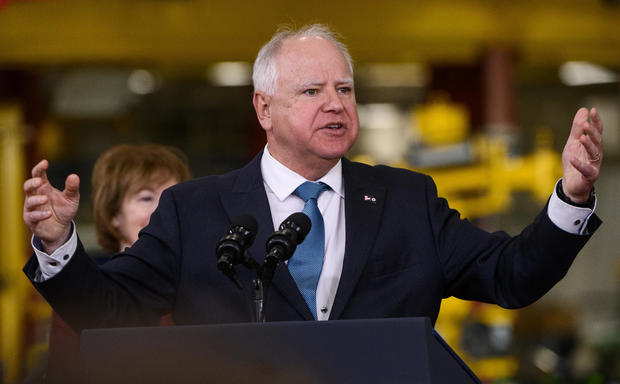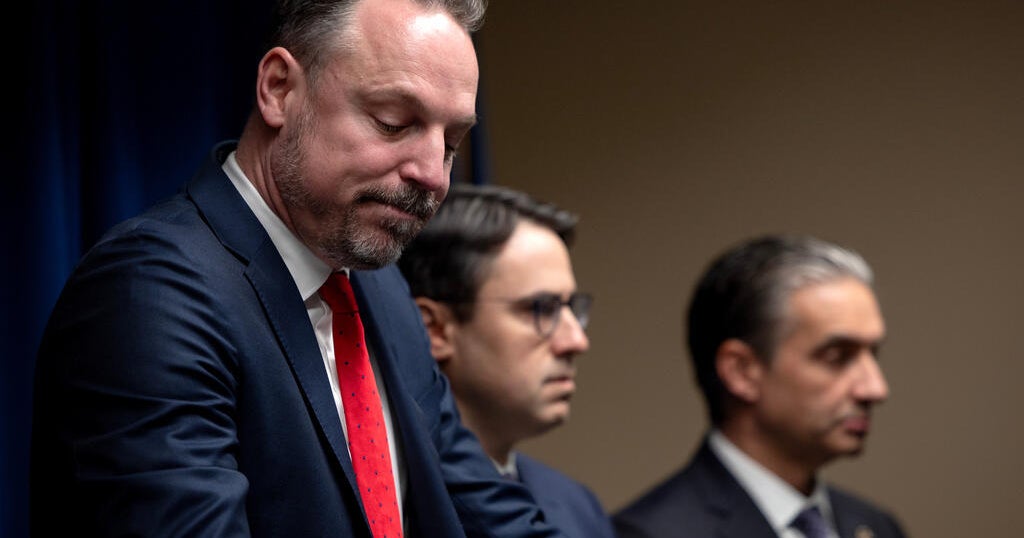Minnesota Gov. Tim Walz vetoes rideshare driver bill after Uber threatens to halt operations outside Twin Cities
Democratic Minnesota Gov. Tim Walz has vetoed a bill that would have set a minimum wage for rideshare drivers after Uber threatened to halt its operations in greater Minnesota — outside of the Minneapolis-St. Paul metropolitan area — if the bill had been signed into law.
In a letter Thursday announcing the veto, Waltz said that "rideshare drivers deserve fair wages and safe working conditions," but said that "this is not the right bill to achieve these goals."
He also argued that the bill would have made Minnesota "one of the most expensive states in the country for rideshare."
The veto is Walz's first as governor, according to CBS Minnesota. It came after an Uber spokesperson said in a statement provided to CBS Minnesota earlier Thursday that the company would stop operating outside the Twin Cities beginning Aug. 1 if House File 2369 became law, further adding that it would limit its services in the Twin Cities to "only offer premium products to match the premium prices required by the bill."
The bill narrowly passed in both chambers of the Democratically-controlled Minnesota Legislature in party-line votes over the weekend.
"Following several months of unanswered requests to work with legislators on comprehensive legislation that provides flexibility and benefits to drivers without compromising service for riders, we are left with a bill that will make it impossible to continue serving most areas of the state," Uber spokesperson Freddi Goldstein said.
Under HF 2369, rideshare drivers would have received "minimum compensation" of at least $1.45 per mile and another 34 cents per minute for all trips in the Twin Cities area. For rides outside of the Twin Cities, drivers would get at least $1.25 per mile and 34 cents per minute. Those rates would have also been adjusted every year for inflation.
Rideshare drivers nationwide have battled for better pay and benefits for years. In November 2020, California voters approved a contentious state proposition that exempted Uber, Lyft and other app-based platforms from classifying their drivers as employees rather than independent contractors. The change would have required the companies to provide benefits such as sick leave and health insurance.
Last year, Washington state passed a similar law to Minnesota's bill, which requires rideshare drivers to be paid $1.50 per mile and 64 cents per minute in Seattle and $1.27 per mile and 37 cents per minute outside Seattle. Rideshare companies are also required to provide drivers with sick leave and workers' compensation.
In 2018, New York City became the first U.S. city to set a minimum wage for rideshare drivers. As of 2023, that rate is $1.31 per mile and 56 cents per minute for trips within New York City. The per-mile rate goes up to $1.70 for wheelchair-accessible vehicles. Both rates increase for trips outside of the city.




